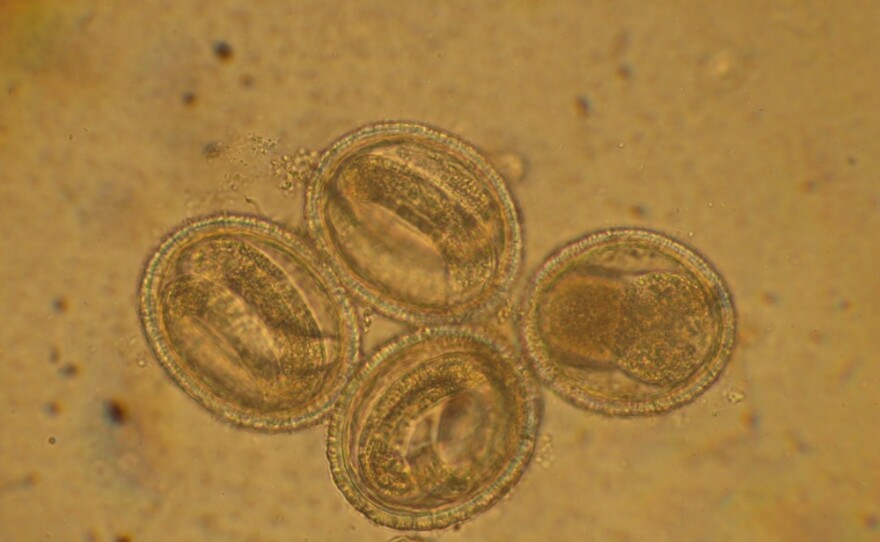They’re cute and friendly looking, with furry faces which make them look like a cross between a cat and dog.
Still, the raccoons which rummage through trash cans and snack on pet food left outside may be exposing you to a little-known type of roundworm, which can cause serious health problems for people.
Sara Weinstein is a researcher who’s been studying raccoon roundworms. She is the lead author of a new study involving UC Santa Barbara and National Centers for Disease Control and Prevention looking at the roundworm issue. She says the parasites are very common in raccoons in Santa Barbara County, and most sampled raccoons have them.
The researchers wanted to see how common the raccoon roundworm infections are in people. The eggs, which are so small that 400 can fit in the head of a pin, if ingested can hatch in the human body, resulting in baby worms about a millimeter in length.
The scientists used a relatively new type of blood test, which detects antibodies created by the human body, to find roundworm infections in 150 volunteers in Santa Barbara County. Seven percent of those in the study had been exposed.
Weinstein says the full health impacts are still unknown. She says in most cases, if you are healthy, your immune system can fight off the infection. Still, in some rare cases, the worms can be very dangerous.
Roundworms live their entire life cycle in raccoon's stomachs. In people however, the worms can burrow through soft tissues, and in rare cases can make their way into eyes, causing blindness, or the brain.
One of the findings of the study is that raccoon roundworm infections in humans might be more common than previously thought.
Raccoons use fecal latrines--basically areas they use as toilets--and roundworm eggs can end up in fecal matter. Killing the eggs isn’t easy. They are very hardy and can survive heat and cold for up to a year. They can even survive chemical treatments and bleach.
Weinstein says the bottom line is to do what you can to discourage raccoons from hanging out around your house, to minimize your risk of exposure. It means not leaving pet food outside which might attract raccoons, and making sure your trash cans aren’t accessible, because they can become a go-to food source for the intelligent mammals. The researchers say you should call pest control experts if you find a suspected raccoon latrine, to dispose of it safely and avoid infection.
The results of the study have just been published in the new edition of the Centers for Disease Control journal “Emerging Infectious Diseases.”




